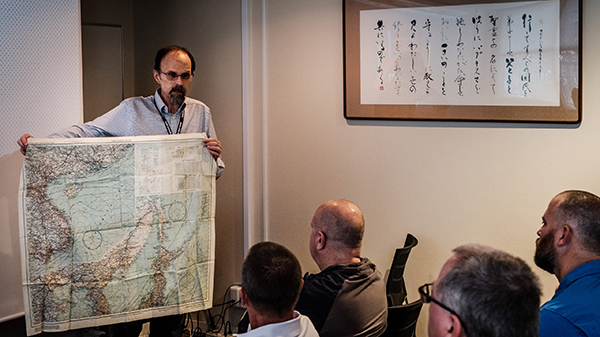The family histories of Carlton and Cornelia Walker were intertwined with Japan long before the Walkers landed there as International Mission Board (IMB) representatives 40 years ago.
Cornelia’s father was a U.S. Army Air Force pilot who flew bombing missions in Japan during World War II. Carlton’s father was in the infantry and served in Japan after the war ended.
Carlton remembers his father’s compassionate heart for the Japanese people.
‘Amazing freedom’
“He never spoke critically of the Japanese. In his mind, they were the most hard-working, disciplined, studious people in the world. He learned a little Japanese and would still try it out on us up until the last years of his life,” Carlton said.
Carlton and Cornelia have devoted four decades of their lives to telling the Japanese people about God’s love for them.
Carlton said Japanese people have a deep understanding of duty and obligation. Frequently these values override what they see as the luxury of personal opinion and feelings.
“It is our desire as missionaries that the same country that barters and trades in obligation and duty will soon come to Christ in record numbers, and their commitment and loyalty to Christ will be an inspiration to all,” Carlton said.
Making personal and individual decisions goes against Japanese cultural customs, so choosing to follow Jesus, not out of a sense of duty, but because of a change of heart in response to the grace and mercy of God, is difficult for Japanese people.
“We speak of the amazing freedom, the no-strings-attached acceptance and the unconditional love that Christ provides, which is, in essence, the good news of the love of God found in Jesus,” Carlton said. “For those who struggle with layers and layers of duty, obligation, responsibility and pressure to conform, we voice the good news that we can come to Christ just as we are.”
One of the major challenges for the Japanese is this free gift sounds too good to be true. Or if it is true, then it must cost something. In Japanese culture, gifts come with the obligation to give something in return.
“Japan is a reciprocal society. Generally speaking, when a Japanese receives a gift, they mark it down figuratively and often literally. If you give me something today, then I feel an obligation to give you something of equal value,” Carlton said. “It won’t do if I give you less in return. Or if I give you far more in return, I obligate the other person, which often serves to make them uncomfortable.”
“So, often we present Jesus as the One who breaks this endless cycle of obligation,” Carlton said. “We can never pay Him back enough, even if we tried, so just rest in the reality that He will not love us any more if we do or don’t. [We] can truly learn how to love recklessly and extravagantly when we are freed from obligation, duty and shame.”
The 2020 Olympics in Tokyo will give the Walkers and other IMB missionaries in Japan an opportunity to share the gospel with many more Japanese people. Volunteer teams from the U.S. will join IMB missionaries and Japanese Christians to spread a message of hope and grace that transcends personal and national duties. Ongoing engagement with the people they meet during the games will be a long-term strategy of IMB missionaries, Japanese churches and English-speaking churches.
Carlton, who is looking forward to serving during the Olympics for a second time, recalled the 1998 Winter Olympics in Nagano.
“It was a marvelous time because I got to be with Japanese people, and that’s who I’m called to be working with,” Carlton said. “That’s what makes me alive, that’s what makes me cry, when I realize there are not as many here [in the church] that need to be.”
‘Holy, holy, holy’
And Carlton shared his vision for the future of the Japanese people.
“I dream of the day when Japanese people will stand up in heaven and say, ‘Seinaru kana, seinaru kana, seinaru kana’ to the Lord God in heaven, which means ‘Holy, holy, holy Lord God’ in Japanese,” Carlton said. “That’s what I want to see in heaven.” (IMB)






Share with others: